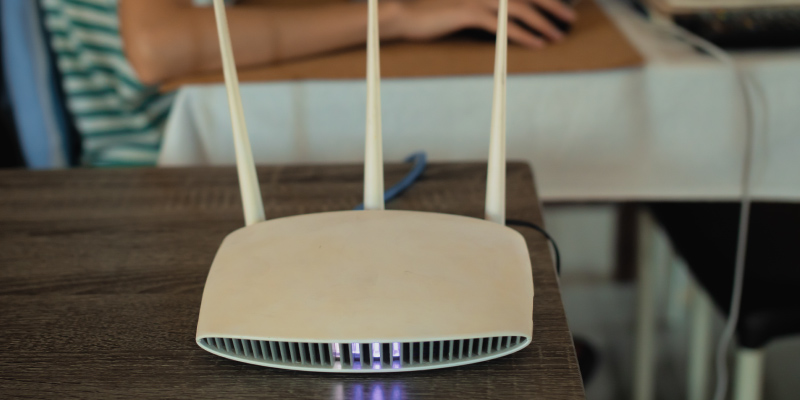Could the definition of broadband be changing anytime soon?

Amanda Morgan

Could the Federal Communication Commission be changing the definition of broadband? The calls are there but the government's mind isn't made up yet.
Could the definition of broadband be changing anytime soon? An introduction to broadband internet
Broadband internet is a high-speed internet connection. It is much faster than a dial-up connection and allows you to do more online. broadband speeds vary depending on your location and the type of broadband connection you have.
The current definition of broadband
The current definition of broadband is 25 Mbps download and 3 Mbps upload. This means that if you want to stream 4K video or play online games, you need a broadband connection. However, many people argue that this definition is outdated and doesn't reflect the current state of broadband technology.
Why change the definition of broadband
Broadband speeds have been constantly increasing over the years, with the average download speed in the U.S now sitting at around 25Mbps while the UK sits at 63Mbps. However, there have been calls for the definition of broadband to be changed to more accurately reflect the current speeds that are available.
At the moment, the broadband speeds that are considered to be ‘fast’ are those that offer a download speed of 24Mbps and an upload speed of 3 Mbps. However, many people argue that this definition is outdated and does not reflect the reality of broadband speeds. Instead, they believe that broadband should be defined as 100 Mbps download and 20 Mbps upload.
This change would mean that broadband speeds would need to increase significantly in order to meet the new definition. However, it is not clear whether this will happen in the near future or not. The current definition of broadband has been in place since 2010, so it may take some time for the broadband industry to catch up to the new definition.
The arguments for changing the broadband definition
There are a few arguments for why the broadband definition should be changed.
Firstly, broadband speeds have increased significantly since the current definition was put in place. The average broadband speed in the U.S is now 25Mbps, which is much faster than it was 10 years ago.
Secondly, the way we use broadband has changed. In 2010, streaming 4K video or playing online games was not possible with the speeds that were available. Now, however, both of these activities are possible with broadband speeds that are considered to be ‘fast’.
The argument against changing the definition
There is one main argument against changing the broadband definition and that is that it would require broadband speeds to increase significantly in order to meet the new definition. This could be difficult for broadband providers to achieve, especially in rural areas.
Our verdict
There is a strong case for changing the broadband definition to more accurately reflect the current state of broadband technology. However, it is not clear whether this will happen in the near future or not.
The current definition of broadband has been in place since 2010, so it may take some time for the broadband industry to catch up to the new definition.

How this change would affect consumers
- That citizens could demand their state or locality enact better legislation mandating higher standards for ISPs
- That ISPs would be forced to up their game in rural America which still suffers from a lack of infrastructure investment as compared to cities
- That we'd see even wider disparities in internet quality between rich and poor neighborhoods as providers race to recoup their investments by garnering only high-paying customers
How would this change affect internet providers?
- They would need to upgrade their infrastructure to meet the new definition of broadband
- They would need to invest more money in broadband infrastructure
- They would need to provide higher quality broadband service to customers in order to meet the new definition
A closer look at broadband internet
How wide is the access to broadband in America?
- 83% of Americans have access to broadband at home
- 54% of rural Americans have access to broadband at home
- 10% of Americans do not have access to broadband at home
What can you do with broadband internet?
- You can stream 4K video
- You can play online games
- You can download large files quickly
- You can use VoIP services like Skype and WhatsApp
- You can telework or participate in online learning opportunities
What are the different types of broadband internet services?
- Dial-up: This is the slowest type of broadband and uses a phone line to connect to the internet. It is not widely used anymore because it is slow and expensive.
- DSL: This type of broadband uses a phone line to connect to the internet, but it is faster than dial-up. It is a good option for people who live in rural areas.
- Cable: This type of broadband uses a cable TV line to connect to the internet. It is fast and widely available, but it can be expensive.
- Fiber: This is the fastest type of broadband and uses fiber optic cables to connect to the internet. It is not as widely available as other types of broadband, but it is becoming more common.
What are the different broadband speeds?
- This refers to the rate at which data can be transferred from the internet to your computer.
- Dial-up: This is the slowest type of broadband and has a speed of up to 56Kbps.
- DSL: This type of broadband has a speed of up to 25Mbps.
- Cable: This type of broadband has a speed of up to 100Mbps.
- Fiber: This is the fastest type of broadband and has a speed of up to 1Gbps.
How much does broadband internet cost?
The cost of broadband varies depending on the type of service, the speed, and the provider. However, in general, broadband prices have been falling in recent years.
- Dial-up: Typically costs around $20 per month.
- DSL: Typically costs around $50 per month.
- Cable: Typically costs around $60 per month.
- Fiber: Typically costs around $70 per month.
How can I get broadband internet?
The best way to find broadband in your area is to use an online tool like HomeLinkd. Simply enter your address and we'll show you all the TV, internet, and home security providers that are available in your area. From there, you can compare prices and speeds to find the perfect broadband for your needs.
What are the alternatives to broadband?
- Satellite: Uses a satellite to connect to the internet. It is expensive and not available in all areas, but it is fast.
- Wireless: Uses radio signals to connect to the internet. It is not as fast as traditional broadband, but it is available in all areas.
- Mobile broadband: Uses cellular networks to connect to the internet. It is not as fast as traditional broadband, but it is available in all areas.
Is broadband available everywhere, including rural areas?
No, broadband is not available in all areas. However, there are a number of initiatives underway to bring broadband deployment to rural areas. For example, the FCC's Connect America Fund is working to bring broadband to millions of rural Americans.
What does Mbps mean?
Mbps is short for Megabits per second. It is a unit of measurement for broadband speed.
What is bandwidth?
Bandwidth is the amount of data that can be transferred from the internet to your computer in a given period of time. It is typically measured in Mbps.

Stay connected with HomeLinkd
So, could the definition of broadband be changing soon? We don't know for sure.
If the FFC is required to change the definition of broadband networks, it could mean major changes for broadband subscribers. For telecommunications companies like AT&T and Verizon, it could mean supplying faster broadband access to wider service areas.
This could benefit every household, proving an adequate broadband standard to everyone. It was be especially beneficial to low-income families and rural areas who suffer due to a lack of broadband options.
There's a growing demand for bandwidth, faster internet speeds and more reliable internet — mostly because of the pandemic raising our broadband needs because of video conferencing for school and work. Many households can't survive without broadband but desperately need faster minimum download speeds as well as faster minimum upload speeds.
Right now, many Americans feel underserved by their internet providers, even if they live in populated areas. So they continue to push and raise demand for faster internet that's still affording for the typical family.
Want to stay up to date with the latest news surrounding broadband availability? We post regular blog posts about the advancements in technology surrounding internet access.
We explore topics related to cable and fiber internet, what speeds are needed for gaming and 4k streaming, the new gigabit internet as well as cost-effective ways to stay connected.










